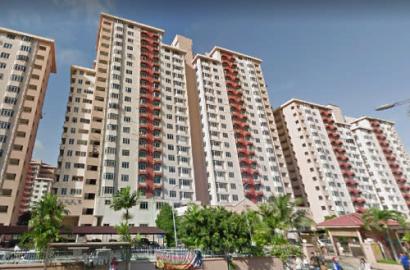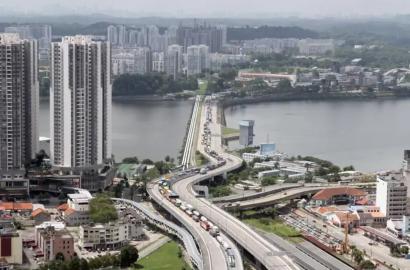Explore Our Exciting New Property Listings Now Available in Prime Locations!
Malaysia’s property sector is expected to stay resilient this year despite lingering global economic uncertainties, analysts say.
The optimism is underpinned by the industrial and residential segments, which are expected to drive growth.
While global factors such as the United States’ reciprocal tariff policies and their impact on trade and sentiment has dampened the broader market’s mood, RHB Research said the domestic-centric nature of Malaysia’s property market should cushion the blow.
“US reciprocal tariff policies and the potential impact to its economy and global trade have negatively hit market sentiment, causing forecasts of weaker gross domestic product (GDP) growth in Malaysia. Yet, our property sector is very much domestic-driven,” the research house said in its latest sector update.
RHB Research highlighted that several prominent developers had rolled out major development and data centre-related deals in the first quarter, which could bolster investor confidence.
Among these were Sunway Bhd’s development project near the Bukit Chagar Rapid Transit System (RTS) Station and long-term lease with DB Schenker, UEM Sunrise Bhd’s collaboration with Singapore-based GuocoLand to develop an industrial park in Gerbang Nusajaya in Johor, and Eco World Development Group Bhd’s land disposal to a foreign solar part manufacturer in Senai, Johor, along with a land sale and lease in Selangor for a data centre.
“These very much indicate that Malaysia is still well positioned to capture data centre investments while Iskandar Malaysia continues to be a destination for foreign direct investments under the Johor-Singapore Special Economic Zone,” RHB Research said.
It said that despite recent profit taking following the sector’s outperformance over the past two years, long-term fundamentals remain sound.
“Admittedly, given the sector’s outperformance over the past two years, investors heavily took profit on the property sector when market sentiment turned bearish over the last few months,” RHB Research stated.
“However, we reiterate that most developers derive their earnings mainly from the local market, and the past data centre-related transactions and land deals with global tech giants have been secured or completed. Hence, we believe earnings will kick in this year,” the research house added.
RHB Research pointed out that Malaysia continued to be appealling as a hub for digital infrastructure, with Iskandar Malaysia’s prospects remaining intact. The research house forecast property sales to grow modestly between 3% and 5% this year, following a 3% year-on-year rise last year.
“This is the fourth consecutive year that aggregate sales numbers have stayed above the RM20bil mark, indicating that most developers have been able to sustain their strong sales since 2021,” the research house said.
Valuations have also become more attractive, with the sector trading at a 56% discount to revalued net asset value, versus about 46% during the peaks last July and this January.
“In our view, developers here should take the opportunity to transform and benefit from the digital-economy agenda being pushed by the government, as well as global trends surrounding artificial intelligence.
“The development projects, logistics, data centres, and land deals that developers have announced so far are value-accretive, and should strengthen long-term earnings,” RHB Research said.
RHB Research maintained its “overweight” stance on the property sector with a preference for “fundamentally strong developers with good earnings visibility”.

相关贴文:
Property prices across the Klang Valley are set to rise this year, but the Selangor government has assured that buyers of state housing projects will not face unreasonable price hikes. State executive councillor for housing, Borhan Aman Shah, emphasised that...
JS-SEZ initiative sparks surge, with 3,000 overhang units sold in the past year



